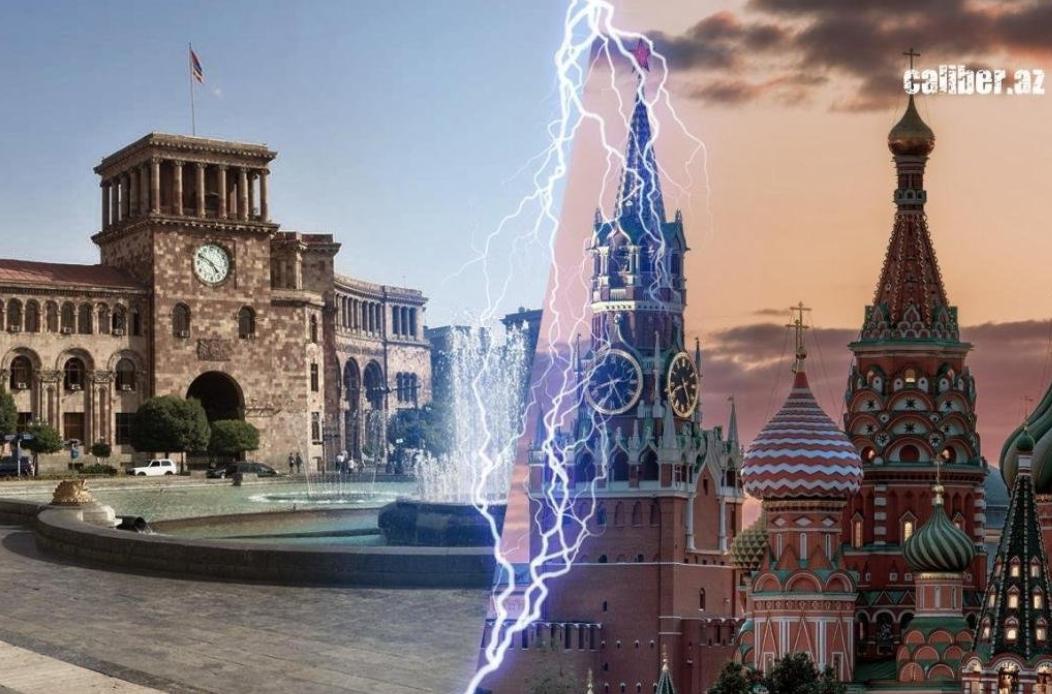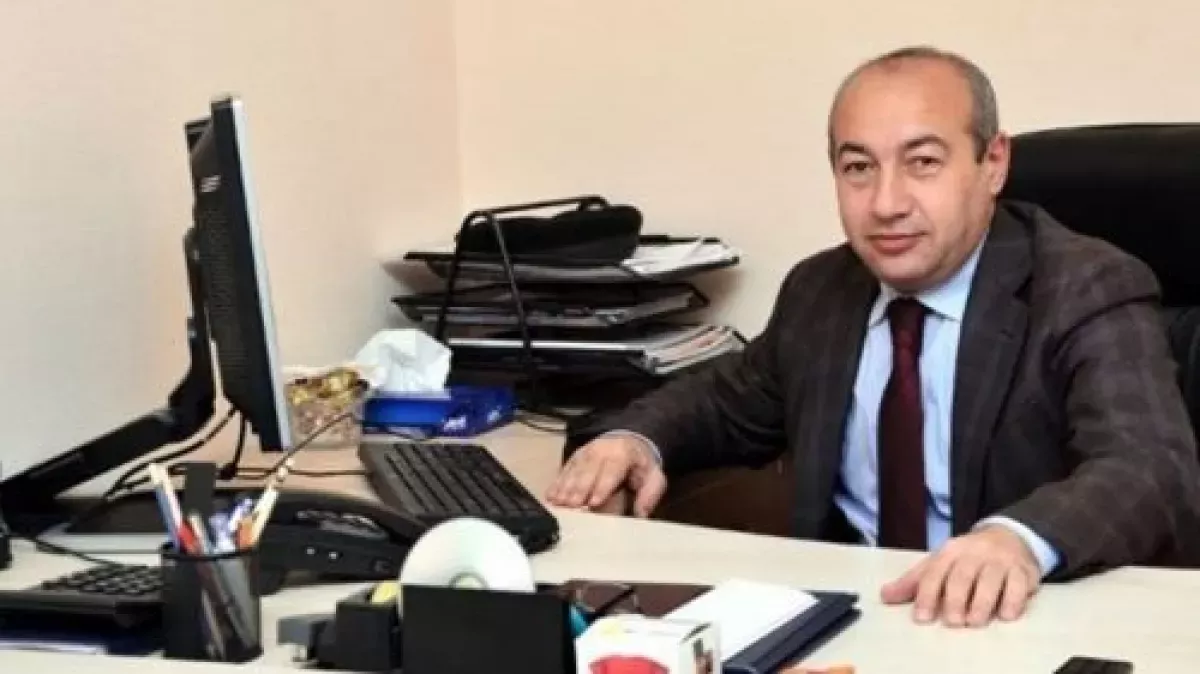"Genocide" sellers' sabotage: Unpacking the Armenian lobby's political games Expert opinions on Caliber.Az
The "Hay Dat" of America, within the framework of the International Religious Freedom Summit, called on the U.S. leadership to take action on issues related to the " Artsakh's survival, Armenia's security and the future of Armenian communities from Syria and Lebanon to Jerusalem's Armenian quarter." This was stated in a message released by the Central Office of the "Hay Dat" Bureau of the Armenian Revolutionary Federation Dashnaktsutyun (ARF-D).
The message specifically mentions: "Panelists underscored that Azerbaijan’s 2023 assault and forced displacement of 150,000 Armenians from Artsakh was aided and abetted by U.S. policymakers. They called on Congress and the Trump Administration to implement targeted sanctions, demand the return of Armenian prisoners of war, and ensure the safe and dignified return of displaced Artsakh Armenians. Panelists outlined key policy measures the U.S. must implement to uphold religious freedom and prevent further Azerbaijani aggression against Armenians."
The Executive Director of the Washington office of "Hay Dat" America, Aram Hamparian, specifically called on the United States to immediately suspend military aid to Azerbaijan. "Good policy starts with moral clarity,” Hamparian stated. “The U.S. must take decisive action, not just issue statements of concern," he added.
Congressman Chris Smith urged the U.S. government to condemn "Azerbaijan's destruction of Armenian churches and cultural heritage," warning that "Baku's ongoing occupation of sovereign Armenian land is a prelude to further aggression." He called on the U.S. State Department to designate Azerbaijan as a "Country of Particular Concern" (CPC) for its systematic persecution of Armenian Christians."
In turn, ArchimandriteGaregin Hambardzumyan mentioned the "urgency of deploying international monitoring teams to Artsakh to document Azerbaijan’s systematic destruction of Armenian churches and religious heritage sites." He also called for the protection of the "rights of Artsakh Armenians to safely return to their homelands under the oversight of the international community."
There is little to say – the mouths of Armenian revanchists and their accomplice lobbyists across the ocean remain far from silent. As usual, they distort the facts with impunity. One outrageous claim asserts that 150,000 Armenians fled Karabakh, despite the fact that their departure was recorded through the Lachin border checkpoint, and the actual number was far smaller. Others accuse American politicians of backing, or even encouraging, Azerbaijan in this process – an interesting fabrication. They also vigorously push for sanctions against Baku – though it's worth noting that previous attempts to impose such sanctions have failed. Some even hope to pressure Azerbaijan's leadership into releasing those responsible for separatism and the killings of Azerbaijanis in Karabakh, including individuals who once proclaimed themselves "presidents of the NKR."
One individual even proposed the deployment of "international monitoring teams" in Azerbaijan's Karabakh region. How this would be implemented in practical terms remains entirely unclear. And, of course, this raises the question: what is the point of all this? Do the authors of these statements not understand the absolute impossibility of their demands, directed to an unspecified recipient? Which Western forces could realistically agree to address the concerns of these "dreaming" nationalists? The answer is none. So why are they causing such a stir in America?
To provide a clearer perspective, Caliber.Az invited well-known experts to assess the situation.

Israeli analyst, political and public figure David Eidelman first highlighted the correctness of the question posed: what is the point of all this?
"Well, as the Soviet poet born in the South Caucasus, Vladimir Mayakovsky, taught us, if the stars are shining, it means someone needs them. And in this case, we must simply ask the question: who needs this? Who stands to benefit, and who is playing which game?
It is clear that what is being described is absolutely disadvantageous for the state of Armenia. Today, Armenia would benefit most from quickly concluding a peace agreement with Azerbaijan. Because a peace agreement with Azerbaijan would virtually mean a peace agreement with Türkiye as well, it would open up communications, bring a surge of strength to the Armenian economy, and essentially bring peace to the region where Armenians live.
Moreover, for Armenia, this is also a way to distance itself from potential risks. Given that Russia is currently occupied in Ukraine, but sooner or later it will free up and may once again turn its attention to the South Caucasus. And unlike Ukraine, it doesn’t even need to send troops into Armenia; Russia already has troops in place, and military bases on the ground. As Pashinyan himself mentioned, according to agreements, Russian troops will be stationed there until 2049. So, organizing a military coup in Armenia is not a problem for Russia—if its hands are freed. That’s why Armenia’s task is to conclude peace with Azerbaijan as quickly as possible, under the best possible terms, with an eye toward possible future security alliances—not with distant America or France, but with neighbours—Türkiye, Azerbaijan, and so on. Because without peace, without collective agreements with Türkiye and Azerbaijan, there will be no peace in Armenia.
It’s clear that many forces stand in the way of this. These forces are not only external. Again, we understand that Russian agencies are not idle, and they absolutely do not want the South Caucasus to completely slip out of their influence.”

Azerbaijan has emerged as a regional power, undertaking actions that Moscow could never have foreseen. Should Armenia agree to peace with Azerbaijan and form agreements with both Azerbaijan and Türkiye, Russia could find itself in a position where Armenia dismisses it entirely, saying, "Who are you? Goodbye." The meeting would have been a mistake, and the two centuries of shared history have not been particularly successful either, the expert said.
“However, within Armenian society, there are forces that will resist this peace with all their might. Who are these forces? Primarily, we are talking about the Dashnaks. The Dashnak mythology of 'Greater Armenia' that hinders progress and has, several times in Armenian history, put forward unrealistic national projects, each time leading to some form of catastrophe. A real catastrophe. We can recall what happened during World War I or what occurred in Karabakh. So, every time the Dashnaks pursued ambitious plans, it led to a catastrophe for the Armenian people," the political technologist reminded.
But, he emphasizes, an even greater opponent of any peace agreement and normalization between Armenia and its neighbours is the Armenian diaspora—primarily in France, the U.S., and Russia.
"Why? Because the Armenian diaspora, whether in Moscow, Los Angeles, or Paris, plays its own game. And this game does not align with the game of the Armenian state. We, Jews, who also have a huge diaspora, have somehow learned that our diaspora must do everything it can to support the Jewish state. Why? Because the Jewish state is revered by the Jewish diaspora as the centre of Jewry. And as a refuge state, just in case. If something happens in the Russian Federation, Jews move to Israel. But for Armenians, it's completely different. The Armenian diaspora views Armenians who remain in Armenia as second or third-class citizens. Because if they were smart, talented, and capable, they would have, of course, moved to Los Angeles, or at least Paris. If not to Los Angeles or Paris, then at least to Moscow. But those who remain in Yerevan are clearly third-class people. And Armenians who live, for example, in the U.S., who control the American Armenian lobby, have their own game. In medieval mysticism, it was said that to disarm a demon that attacks you, you must name its game. If you name its game, you disarm it. So, the game of the Armenian diaspora is to sell 'genocide.' They are the sellers of 'genocide.' For them, the ideal situation is not peace—no, Armenia is undergoing a permanent 'genocide,' a permanent catastrophe, a constant chronic tragedy. Only then will they be heard in congresses, senates, and so on. Only then can they play their game and raise money for it, both from the Armenian diaspora and international organizations, including government agencies like the U.S. State Department. That’s why they are genocide sellers. They don’t want peace. They don’t want things to get better in Armenia. They need the image of Azerbaijanis and Turks on horseback storming into Yerevan and hacking babies in half. That’s the image they need. They can sell that. And they know nothing else to sell. They sell the Armenian tragedy. So for them, it’s crucial that the Armenian tragedy always continues. That’s it," Eidelman concluded.

Political analyst Khagani Jafarli, in turn, pointed out that, like all lobbying interest groups, the primary goal of the "Hay Dat" organization is to demonstrate the necessity of its existence.
"That’s why they don’t hesitate to make loud statements. However, they also try to inflict some harm on the party they consider the enemy or a competitor. Because such successes 'legitimize' them. That’s why 'Hay Dat' periodically gives speeches and organizes events against Azerbaijan and Türkiye.
They are trying to take certain steps by capitalizing on Donald Trump’s rise to power in the United States. In particular, they want to leverage Trump's sensitivity to religious issues. This is why slander is spread about Azerbaijan systematically destroying Armenian churches and religious monuments. The goal is to play on Trump’s religious sentiments and frame the political conflict as a religious one. Even by putting forward fantastic demands, they aim to achieve at least small goals and then present this as their victory," the political analyst explained.
He continued that Trump's return to power accelerated the collapse of the crumbling old world order.
"It is highly likely that 2025 will go down in history as the last year of the old world order’s collapse and the first year of the establishment of a new world order. The new world order, like all changes, comes with risks. In order to benefit from these changes, Azerbaijan needs to be strong both domestically and abroad. The world is going through a very complex period. The most important task ahead of us is to guide our state and people through this phase without losses," Jafarli concluded.








